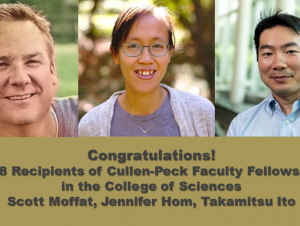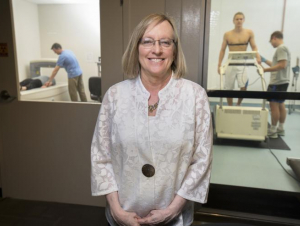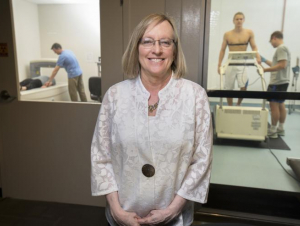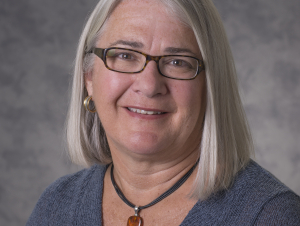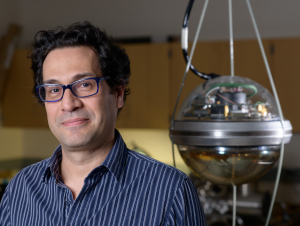To request a media interview, please reach out to experts using the faculty directories for each of our six schools, or contact Jess Hunt-Ralston, College of Sciences communications director. A list of faculty experts is also available to journalists upon request.
Latest News
Shana Kerr is one of six Georgia Tech faculty members who are renowned experts in their respective fields. But what makes them beloved by students is the inspiration and innovation, personality and passion, humility and humanity, that they bring into their classrooms and labs.
Jennifer Hom, Takamitsu Ito, and Scott Moffat are the 2018 recipients of Cullen-Peck fellowships. The awards recognize innovative research by faculty at the associate professor or advanced assistant professor level.
Getting parched can fuzz attentiveness and make it harder to solve problems. Dehydration can easily put a dent in those and other cognitive functions, a new metadata analysis of multiple studies shows. Researchers at Georgia Tech are particularly interested in possible ramifications for people who toil in the heat around heavy equipment or military hardware.
Anyone lost in a desert hallucinating mirages knows that extreme dehydration discombobulates the mind. But just two hours of vigorous yard work in the summer sun without drinking fluids could be enough to blunt concentration, according to a new study.
Lizanne DeStefano, executive director of the Georgia Tech Center for Education Integrating Science, Mathematics, and Computing, is one of 18 inaugural members of the STEM Education Advisory Panel of the National Science Foundation. The new panel will advise the interagency federal Committee on Science, Technology, Engineering, and Mathematics.
An international team of scientists, including two researchers from Georgia Tech, has found the first evidence of a source of high-energy cosmic neutrinos, ghostly subatomic particles that can travel unhindered for billions of light years from the most extreme environments in the universe to Earth.


